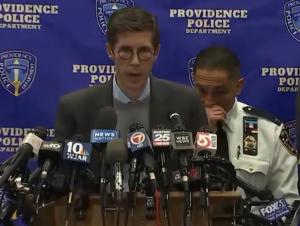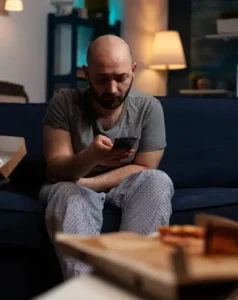After My Affair, My Wife Became Strangely Calm—Then She Revealed the Truth That Changed Everything
How One Man’s Betrayal Led to an Unexpected Pregnancy and a Profound Lesson About Forgiveness, Grace, and Second Chances
After fifteen years of marriage, I made a devastating mistake that would forever divide my life into “before” and “after.” I was unfaithful to my wife, Sarah—a woman who had stood beside me through job losses, family deaths, financial struggles, and every other challenge life had thrown at us.
And then I chose to come clean about it.
I could have hidden it. The affair had already ended. The other woman had moved to another state. No one who mattered knew except me. I could have carried that secret to my grave and spared Sarah the pain of knowing.
But the guilt was eating me alive from the inside. Every time she smiled at me, every time she asked about my day, every time she reached for my hand while we watched television, I felt like a fraud. Like I was living a lie that was slowly poisoning everything good between us.
So one evening, after she’d made my favorite dinner and we were sitting on our back porch watching the sunset—one of our sacred rituals after fifteen years together—I told her everything.
The Immediate Aftermath
I expected screaming. I expected things to be thrown, maybe at my head. I expected the kind of explosive rage you see in movies when betrayal is revealed—plates shattering, doors slamming, voices raised to volumes that make the neighbors wonder if they should call someone.
But Sarah didn’t scream. She didn’t throw anything. She didn’t even raise her voice.
Instead, tears fell silently down her face, catching the golden light of the setting sun. She sat completely still in her chair, her hands folded in her lap, those tears just streaming steadily like a faucet that wouldn’t turn off.
Then she stood up without a word, walked inside the house, and went to our bedroom. I heard the door close—not slam, just close—with a soft, final click that somehow felt worse than any amount of yelling.
She didn’t come out for the rest of the night.
I slept on the couch, if you can call what I did “sleeping.” Mostly I lay there staring at the ceiling, replaying my confession over and over, wondering what she was thinking, what she was feeling, whether this was the end of everything we’d built together.
In the days that followed, Sarah grew distant and withdrawn. She moved through the house like a ghost, barely making eye contact, speaking only when absolutely necessary. She went to work, came home, made dinner with mechanical efficiency, and retreated to the bedroom early each night.
The silence between us was suffocating—a heavy, oppressive thing that filled every room and made the air feel thick and hard to breathe.
I tried to give her space while also trying to show remorse. I apologized constantly. I offered to go to marriage counseling. I promised I’d do whatever it took to rebuild her trust. I told her I’d move out if that’s what she needed, that I’d give her time and space to decide what she wanted.
She listened to all of this with that same distant expression, neither accepting nor rejecting my offers, just… existing in some removed place I couldn’t reach.
I was prepared for her to ask for a divorce. I’d already looked up lawyers and apartment listings, ready to accept whatever consequences came from my actions.
But then, about three weeks after my confession, something completely unexpected happened.
The Inexplicable Change
Sarah began treating me with tenderness again.
It started small—a cup of coffee waiting for me in the morning, made exactly the way I liked it. A genuine smile when I came home from work instead of the blank, distant stare I’d been getting. Her hand briefly touching mine when I handed her something at the dinner table.
Then it escalated in ways that left me completely confused.
She started cooking my favorite dishes again—the labor-intensive ones she only made for special occasions. Her famous lasagna that took three hours to prepare. The beef stew her grandmother had taught her to make. The lemon bars I’d always loved that required precise timing and technique.
She began leaving kind notes around the house. Nothing profound or lengthy, just small things: Have a good day tucked into my lunch bag. Thank you for taking out the trash on a Post-It stuck to the bathroom mirror. Thinking of you on the kitchen counter where I’d see it first thing in the morning.
She greeted me with warm smiles when I came home, asked about my day with what seemed like genuine interest, sat beside me on the couch in the evenings instead of retreating to the bedroom.
It was as if nothing had happened. As if I hadn’t confessed to betraying fifteen years of marriage vows and breaking the trust she’d given me unconditionally.
I couldn’t make sense of it.
Was this some kind of performance? Was she putting on a brave face while secretly consulting divorce attorneys? Was this the calm before an inevitable storm?
Or worse—and this thought haunted me constantly—was she planning something? Some kind of elaborate revenge I couldn’t yet see coming?
The kindness felt almost surreal, disconnected from the reality of what I’d done. I didn’t deserve it. I knew I didn’t deserve it. So why was she giving it to me?
Growing Suspicion
Weeks passed, and Sarah’s strange calmness continued, even intensified. She seemed almost… peaceful. Content in a way that felt deeply unsettling given everything we’d been through.
And then I noticed a pattern.
Every week—sometimes twice a week—Sarah would tell me she had an appointment with her gynecologist. Doctor’s appointments, she’d say, her expression neutral, offering no additional details.
At first, I didn’t think much of it. Women have regular checkups, routine screenings, health maintenance appointments. It wasn’t unusual.
But as the frequency increased, my guilt-addled brain began spinning scenarios that made my stomach turn.
Why would she need to visit her gynecologist so often?
Was she having some kind of health crisis she wasn’t telling me about? Was there something seriously wrong that she was dealing with alone because she no longer trusted me enough to share it?
Or—and this thought made me feel physically sick—was she seeing someone else? Was “gynecologist appointment” just a cover story for meeting another man? Was she having her own affair as some kind of retribution?
The rational part of my brain told me I had no right to question her, no right to ask for explanations or demand accountability. Not after what I’d done. I’d destroyed the foundation of trust in our marriage. I’d forfeited the right to expect transparency.
I told myself repeatedly: It’s not your place to be suspicious. You’re the one who betrayed her trust. Whatever she’s doing, you have to respect her privacy and her process.
But guilt and anxiety don’t respond well to rational arguments. The unease grew stronger each day, a gnawing sensation in my gut that I couldn’t shake no matter how much I tried to convince myself I was being paranoid.
I started noticing small things with the hyperfocus of someone looking for evidence to confirm their worst fears. She’d come home from these appointments looking… different. Not upset, but contemplative. Quiet in a way that felt significant.
She’d go straight to the bedroom and close the door for a while before emerging for dinner. What was she doing in there? Crying? Calling someone? Processing something I wasn’t privy to?
The not-knowing was torture.
The Confrontation
Finally, one evening after she returned from yet another “gynecologist appointment,” I couldn’t take it anymore.
We were in the kitchen. She was washing dishes from dinner—another elaborate meal she’d prepared with care—and I was drying them, falling into the comfortable domestic rhythm we’d established over fifteen years of marriage.
The normalcy of it, contrasted with the absolute turmoil inside me, finally broke something loose.
“Sarah,” I said, my voice coming out rougher than I intended. “Can we talk?”
She glanced at me, her hands still in the soapy water. “Of course. What’s on your mind?”
“The appointments,” I said, setting down the dish towel. “The gynecologist appointments. You’ve been going every week, sometimes more. I just… I need to know what’s going on.”
I braced myself for anger—for her to rightfully point out that I’d forfeited the right to question her about anything, that my infidelity meant I no longer got to demand transparency or explanations.
But she didn’t get angry.
She looked at me for a long moment, her hands going still in the sink. Her expression was unreadable—not cold, not warm, just… considering. Like she was deciding something important.
Then she dried her hands carefully on the kitchen towel, turned to face me fully, and smiled.
Not a bitter smile. Not a sad smile. But something that looked almost like peace.
“I’m pregnant,” she said softly.
The words hit me like a physical blow. The kitchen seemed to tilt, my vision going slightly blurry at the edges. I had to grip the counter to steady myself.
“What?” I managed to choke out.
“I’m pregnant,” she repeated, still with that same calm, peaceful expression. “Thirteen weeks. I found out a few days after you told me about the affair.”
The Revelation
My mind was racing, trying to process this information that didn’t fit with any of the narratives I’d been constructing in my head.
“The appointments…” I said stupidly.
“Were prenatal checkups,” she finished. “They’re more frequent in the first trimester, especially at my age.” She was thirty-eight—not ancient, but old enough that doctors paid closer attention. “I needed to make sure everything was developing properly.”
I sank into one of the kitchen chairs, my legs suddenly unable to support me. “Why didn’t you tell me?”
Sarah pulled out the chair across from me and sat down, her hands folding on the table in front of her—the same gesture she’d made on the porch when I confessed my infidelity.
“Because I needed time to figure out what to do,” she said quietly. “When you told me about the affair, I was devastated. Completely shattered. And then three days later, I took a pregnancy test on a whim because my period was late, and it was positive.”
She paused, her eyes glistening slightly but not crying. “I had to decide whether I wanted to stay in this marriage. Whether I could forgive you. Whether bringing a child into a potentially broken home was the right thing to do.”
“And the kindness?” I asked, my voice barely above a whisper. “The cooking, the notes, the… acting like everything was okay?”
“Was me protecting myself and the baby,” she said simply. “Stress isn’t good for pregnancy. Constant fighting and anger and resentment—none of that is healthy for a developing child. So I made a conscious choice to create a calm environment while I figured things out.”
“But you smiled at me,” I said, still struggling to understand. “You were genuinely kind. It wasn’t just… neutral. You actually seemed happy.”
Sarah’s expression softened. “I was happy. Not about the affair—that still hurts more than you can probably imagine. But I was happy about the baby. Happy about the possibility of bringing new life into the world. And I realized that I could hold both of those feelings at once—the pain of your betrayal and the joy of this unexpected blessing.”
She reached across the table and took my hand, her fingers warm and steady. “I’m not going to lie and say I’ve completely forgiven you. I’m not sure forgiveness works that way—it’s not a switch you flip and suddenly everything’s okay. But I decided that I want to try. I want to give this marriage another chance. I want our child to grow up with both parents who love them.”
“After everything I did—”
“After everything you did,” she interrupted gently, “you told me the truth. You didn’t have to. You could have kept it secret forever and I probably would never have known. But you felt guilty enough, loved me enough—or at least respected me enough—to be honest even though you knew it would hurt me.”
She squeezed my hand. “That doesn’t excuse what you did. But it tells me that you’re capable of growth, of accountability, of doing the right thing even when it’s hard. And those are qualities I want in a husband and a father.”
Processing the Truth
I sat there in our kitchen, holding my wife’s hand, trying to absorb the magnitude of what she’d just told me.
She was pregnant. With our child. A child who had been conceived before my affair—which meant that while I was betraying our marriage, she was carrying our baby. The timing made my stomach turn with fresh waves of shame.
And instead of falling apart, instead of letting the chaos of my confession destroy her and potentially harm the pregnancy, she had made the deliberate, conscious choice to create peace. To protect both herself and our unborn child by choosing calmness over rage, by creating an environment of stability even while her world was falling apart.
“I don’t deserve you,” I said, my voice breaking.
“Probably not,” she agreed, and there was the tiniest hint of a smile at the corner of her mouth. “But marriage isn’t about deserving each other. It’s about choosing each other, even when it’s hard. Even when we’ve hurt each other. Even when forgiveness feels impossible.”
“I’m so sorry,” I said for what felt like the millionth time, but this time it carried the weight of truly understanding what I’d almost destroyed. “I’m so incredibly sorry, Sarah.”
“I know you are,” she said. “And I’m choosing to believe that you won’t make this mistake again. I’m choosing to believe that this is your rock bottom, and from here you’ll only go up.”
She stood up and moved around the table to where I was sitting. I pulled her into my arms—carefully, mindfully aware of the tiny life growing inside her—and held her while I cried into her shoulder.
She stroked my hair the way she’d done countless times over fifteen years, providing comfort even though I was the one who’d caused all this pain.
The Promise
That night, lying next to Sarah in our bed—the bed where we’d slept together for fifteen years, where we’d made love and argued and reconciled and dreamed about our future—the full weight of what had happened finally hit me.
This incredible woman had every right to leave me. She could have kicked me out, filed for divorce, told everyone what I’d done and been completely justified in her anger and her decision to end our marriage.
But instead, she had chosen forgiveness. Not because I’d earned it or deserved it, but because she was strong enough and gracious enough to offer it anyway.
She had chosen to protect our child—a child I hadn’t even known existed—by creating an environment of peace instead of chaos.
She had shown me a kind of love that I hadn’t fully understood before: not the romantic, passionate love of early relationships, but the mature, deliberate, chosen love that says I see your worst and I’m staying anyway.
In that moment, with my hand resting gently on her still-flat stomach where our child was growing, I made a promise to myself:
I would become the kind of husband who truly deserved her resilience. I would spend every day for the rest of my life proving that her faith in me wasn’t misplaced. I would be the father our child deserved—present, faithful, trustworthy.
I would never again betray the trust of the woman who had shown me more grace than I had any right to expect.
The Road Ahead
I’m writing this six months later. Sarah is eight months pregnant now, her belly round and full of life, moving with increasing frequency as our daughter (we found out it’s a girl) prepares to enter the world.
Those six months haven’t been easy. Rebuilding trust never is.
We started marriage counseling, driving an hour each way every Tuesday evening to see a therapist who specializes in infidelity recovery. Those sessions have been brutal—forcing me to confront not just what I did, but why I did it, what weaknesses in myself and in our marriage created the conditions where I thought betrayal was acceptable.
Sarah has bad days where the hurt resurfaces and she can barely look at me. Days where I can see her withdrawing again, building walls to protect herself. On those days, I give her space while also making sure she knows I’m here, that I’m not running away from the hard parts, that I’m committed to this process however long it takes.
But we also have good days. Days where we laugh together, where she reaches for my hand naturally, where we talk about baby names and nursery colors and what kind of parents we want to be. Days where it feels like we might actually make it through this.
We’ve established new boundaries and new patterns of accountability. I installed an app on my phone that shares my location with Sarah at all times. I check in regularly throughout the day. I’ve cut off contact with mutual friends who knew about the affair and didn’t tell her. I’m completely transparent about my schedule, my whereabouts, my interactions with other women.
Some people might call this excessive or controlling. I call it earning back trust one day at a time.
Sarah has also been doing her own work—not because she did anything wrong, but because she’s recognized patterns in our marriage that she wants to change. Ways she’d stopped communicating her needs. Ways she’d let resentments build instead of addressing them. Ways we’d both gotten complacent and taken each other for granted.
We’re learning to be better partners to each other. Not perfect—we’ll never be perfect. But better. More honest. More vulnerable. More intentional.
What I’ve Learned
This experience has taught me lessons I wish I’d learned without having to hurt someone I love:
Marriage requires constant tending. You can’t just commit once on your wedding day and assume that’s enough to carry you through. You have to choose your spouse again and again, especially during the mundane middle years when the initial passion has faded and you’re just living life together.
Betrayal isn’t just about the action—it’s about the lies. The affair itself was terrible, but the real damage came from the deception, from creating a double life, from making my wife doubt her own perception of reality when she sensed something was wrong but I kept insisting everything was fine.
Guilt is self-indulgent if it doesn’t lead to change. Feeling terrible about what I’d done wasn’t enough. Sarah didn’t need my guilt or my self-flagellation. She needed me to do the hard work of becoming a different person—someone she could trust again.
Forgiveness is a gift, not a right. Sarah didn’t owe me forgiveness. She chose to offer it, but she could have just as easily chosen to walk away and she would have been completely justified. I will never take that gift for granted.
Love isn’t measured by flawlessness—it’s measured by how we respond to failure. The mark of a strong marriage isn’t that you never hurt each other. It’s that when you do hurt each other, you’re willing to do the work to heal.
Sometimes life offers second chances, but only when we grow enough to earn them. I got a second chance not because I deserved one, but because Sarah was strong enough to offer it and I was finally broken enough to change.
To Anyone Reading This
If you’re someone who has been unfaithful and is trying to decide whether to confess: I can’t make that choice for you. But I can tell you that living with the secret was eating me alive, and while the truth caused tremendous pain, it also created the possibility for real healing. Secrets are cancer in a marriage. Truth is painful surgery, but it’s the only way to remove the disease.
If you’re someone whose partner has been unfaithful: I’m so sorry. You didn’t deserve that. Your pain is valid and whatever you decide—to stay or to leave—is the right choice for you. There’s no nobility in staying with someone who has hurt you if they’re not willing to do the work to change. But if they are willing to do that work, if they’re genuinely remorseful and committed to rebuilding trust, then reconciliation is possible. Not easy. Not quick. But possible.
If you’re someone in a marriage that feels stale or disconnected: Don’t wait for a crisis to pay attention. Don’t let resentments build until they create cracks that betrayal can slip through. Talk to each other. Go to counseling before you think you need it. Choose each other actively, not just passively.
The Baby
Our daughter was born four weeks after I started writing this. We named her Grace—a name Sarah chose for reasons that seem almost too perfect.
“Because grace is what brought us here,” she explained when she suggested it. “Grace is the unearned gift that saves us when we don’t deserve saving.”
Holding Grace in my arms for the first time, seeing Sarah exhausted and radiant in the hospital bed, I felt the full weight of what I’d almost destroyed.
This moment—this perfect, beautiful moment of our family beginning its next chapter—almost didn’t happen. If Sarah had left me (which she had every right to do), I would have missed this. I would be visiting my daughter on court-ordered weekends instead of waking up to her every morning. I would be a part-time father paying child support instead of a present parent changing diapers and singing lullabies at 3 AM.
I almost threw this away for something that wasn’t remotely worth the cost.
Final Thoughts
I’m not writing this to present myself as some kind of redemption story. I’m not the hero here—Sarah is. Her strength, her grace, her willingness to forgive when she had every reason to walk away.
I’m also not writing this to suggest that everyone should stay in a marriage after infidelity. Some betrayals are too deep, some patterns too destructive, some people too unwilling to change. Leaving is often the right and necessary choice.
But I am writing this to say: if you’ve made terrible mistakes, real change is possible. If you’ve been hurt, healing is possible. If your marriage feels broken, repair might be possible—not guaranteed, not easy, but possible.
Life sometimes offers second chances. But they only matter if we become people worthy of receiving them.
I’m spending every day trying to become that person—the husband Sarah deserves, the father Grace needs, the man I should have been all along.
Not perfect. But present. Faithful. Grateful.
Trying to live up to the grace I’ve been given.
This is a story about failure, forgiveness, and the possibility of redemption—not because we deserve it, but because sometimes love is strong enough to offer it anyway.

Emily Johnson is a critically acclaimed essayist and novelist known for her thought-provoking works centered on feminism, women’s rights, and modern relationships. Born and raised in Portland, Oregon, Emily grew up with a deep love of books, often spending her afternoons at her local library. She went on to study literature and gender studies at UCLA, where she became deeply involved in activism and began publishing essays in campus journals. Her debut essay collection, Voices Unbound, struck a chord with readers nationwide for its fearless exploration of gender dynamics, identity, and the challenges faced by women in contemporary society. Emily later transitioned into fiction, writing novels that balance compelling storytelling with social commentary. Her protagonists are often strong, multidimensional women navigating love, ambition, and the struggles of everyday life, making her a favorite among readers who crave authentic, relatable narratives. Critics praise her ability to merge personal intimacy with universal themes. Off the page, Emily is an advocate for women in publishing, leading workshops that encourage young female writers to embrace their voices. She lives in Seattle with her partner and two rescue cats, where she continues to write, teach, and inspire a new generation of storytellers.









